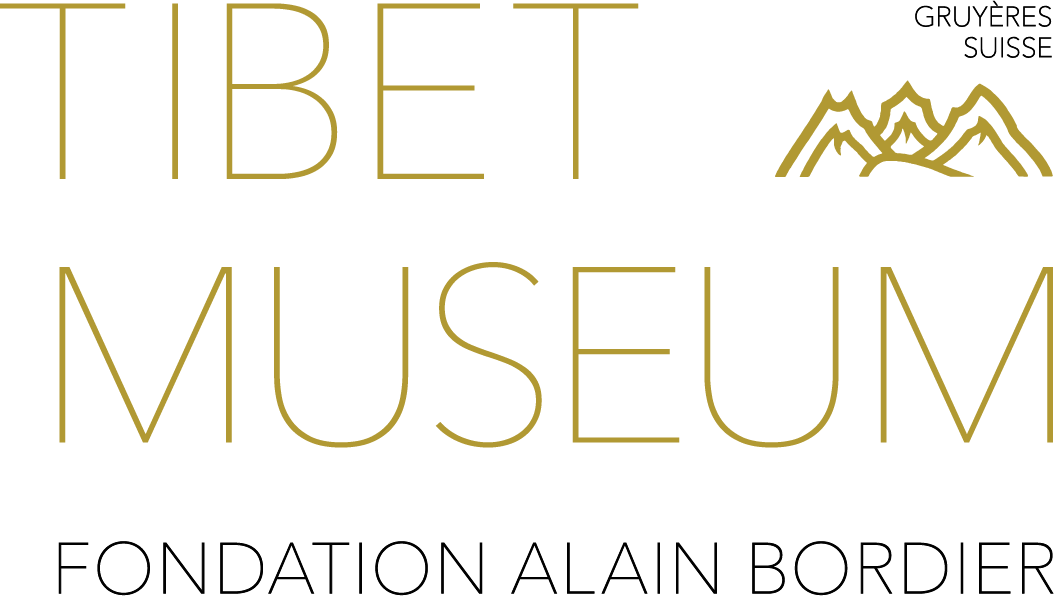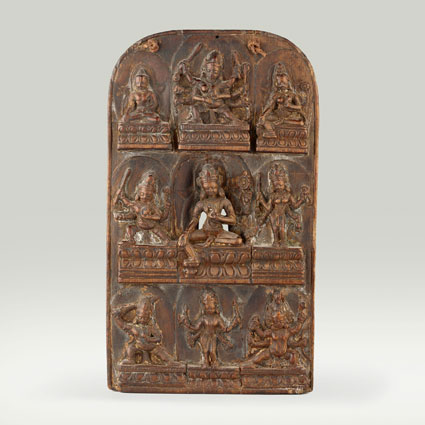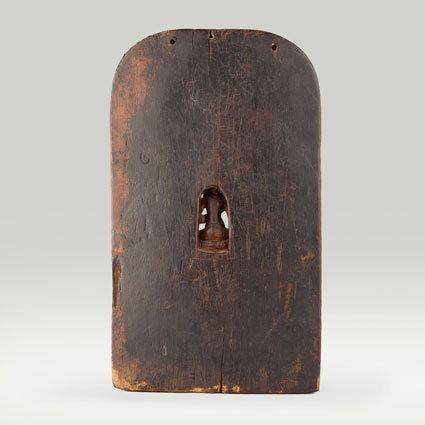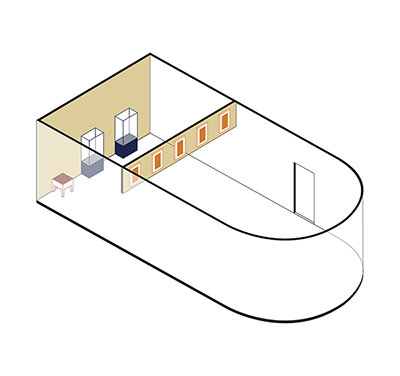ABS 117
Code: ABS 117
Country: Tibet
Style:
Date: 1200 - 1300
Dimensions in cm WxHxD: 14.2 x 24.5 x 2.3
Materials: Wood
This wood carving represents a travelling shrine of a monk. Alltogether there are nine deities depicted in three rows. Six of the deities are placed upon double lotus pedestals, while the remaining three figures are placed upon single lotus stands. The centre image of this group of nine images represents Pita Amoghapasa (Tib. Don zhags ser po). He is seated in the attitude of ease (lalitasana) on a lotus pedestal and rests the right foot on a lotus flower (padma). He is bedecked with jewelled ornaments and displays with the right hand the gesture of charity (varada mudra). The left is raised an holds the stem of a lotus flower blossoming above.
Buddha Shakyamuni / Eight-armed Ekajata / Syamatara
(Tib. Sakya thub pa) / (Tib. Ral gcig ma) (Tib. sGrol ljang)
CBIT 618
Yellow Amoghapasa
Four-armed Hayagriva / Pita Amoghapasa / Bhrkuti (?)
(Tib. rTa mgrin)/(Tib. Don zhags ser po)/(Tib. Khro gnyer can ma)
CBIT 616 CBI T617 v 618
Acala / Anucara Rakta Amoghapasa / Hayagriva*
(Tib. Mi gyo ba)/(Tib. ’Khor don zhags dmar po)/(Tib. rTa mgrin)
CBIT 616 CBIT 194, 674
*Arya-Atisa-krama-Caturdakin¡-parivara Hayagriva (Tib. rTa mgrin sva na bzhi skor jo bo lugs)
Bhattacharyya, Benoytosh , 1958. Indian Buddhist Iconography. Calcutta: K. L. Mukhopadhyay. Pp. 128–29, 131, 165, 233 - References to the Iconography of Hayagriva
Chandra, Lokesh, 1991. Buddhist Iconography of Tibet (CBIT). New Delhi: International Academy of Indian Culture & Aditya Prakashan. Nos. 174, 189, 194–195, 229–233, 241, 247–248, 616, 621, 624, 672–81, 774, 942, 1053, 2168 (?), 2369–71 (166–168), 2416 (213) - References to the Iconography of Hayagriva
de Mallmann, Marie-Thérèse, 1963. Les enseignements iconographiques de L'Agni-purâna. Paris: Presses universitaires de France. Pp. 38-40 - References to the Iconography of Hayagriva
de Mallmann, Marie-Thérèse, 1975. Introduction à l'iconographie du tântrisme bouddhique. Paris: Adrien Mainsonneuve (Jean Maisonneuve successeur (1970). Pp. 180–181 - References to the Iconography of Hayagriva
Gorakshar, Sadashiv, 1973. “An inscribed Image of Hayagriva – rTa mgrin – from Tibet in the Prince of Wales Museum”, BPWM, No. 12. Bulletin of the Prince of Wales Museum of Western India, No. 12. Pp. 70–72, 3 figs - References to the Iconography of Hayagriva
Joshi, Nilakanth Purushottam, 1973. Hayagriva in Brahmanical Iconography”, JISOANS, Vol. V, (1972–73). JISOANS. Pp. 36–45, 2 figs - References to the Iconography of Hayagriva
van Gulik, Robert, 1935. Hayagriva – The Mantrayanic Aspect of Horse-Cult in China and Japan, Internationales Archiv für Ethnographie, Suppl., Band XXXIII. Leiden: E. J. Brill. References to the Iconography of Hayagriva



